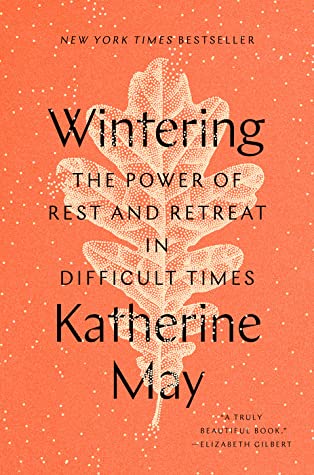Time for a rest?

It seems natural in temperate climates to feel autumn as a time to get things done in preparation for the less active time, winter. The activity level, for me, includes a major holiday season occurring at the same time that school is starting again and autumn begins. Now that the holiday season is over, I am planning the last few outdoor house repairs, thinking about Halloween costumes, and trying to remember what a healthy slowing down actually feels like.
One such December, I read Wintering: The Power of Rest and Retreat in Difficult Times by Katherine May. When I heard a talk about the book, I realized that next to nothing about this concept stuck with me. I struggle with the association of retreat and self-care as somehow shirking my duties to the world. This is my review of the book, from December 2021:
I recommend this as winter reading. Winter is a metaphor for times when we are less “productive” and more introspective. In the author’s case, winter came as a retreat from her over-scheduled life. Her health brought her to dropping her academic job, then looking at what her life is about, when she has space to look at it.
Not every chapter spoke to me, but each one spoke in a well-observed and refreshing tone. I found this book uneven. Some of the chapters were memoir from years past, some were about the author’s life while writing the book, some were journalism — with the author dipping her toe into some aspect of rest and retreat and how people react to winter. [Goodreads]
My review shows my remaining resistance to what Katherine May was trying to describe. My review was about her life and her process of writing a book about a restorative reset and how I responded to it. The distance is clear, when I reread my words above, now.
Coming back to the idea of rest this winter
I am grateful to Neema Avishia for her review of the same book. She published it in 2022 on WBUR’s Cognoscenti. In contrast, Neema Avishia saw the book in the context of her own life and her process of finding restorative rest. She created some space for restorative rest and she listened to what she was telling herself. She looked at her upbringing, and saw that rest was not part of her life plan.
She writes:
Through observation, I came to see rest as a privilege. It is not a concept I was raised with. Rest is not a state of being that I understood for a very long time. And so, for nearly two decades, I fashioned my life and my career after my parents — I worked. Incessantly. [source]
Ms. Avishia grew up in a background that had the same ethic as my family of origin. Her experiences were different, culturally and geographically, but they are the experiences of lower-middle-class and working-poor people throughout America, throughout the generations. The American Dream proposes that if you work hard, you will succeed. So, if you are not succeeding, work harder, work longer. If you don’t work hard and long, you will no longer succeed, even if you are succeeding now.
Katherine May’s book hit a chord for people who have been working harder and longer for too long. Like Katherine May and Neema Avishia, there is a point where we can no longer go on. Achievement, in the face of hard work, is no longer enough. I hear her, and I relate to her story. Ms Avishia writes:
Instead of independent obstacles or disparate challenges, work now felt like a daily series of attempts to ram myself into a giant brick wall of inequity and ill logic — a wall that showed no signs of crumbling. And from somewhere within my body, this deep need to turn inwards came to the surface, demanded to be seen, couldn’t be silenced or deterred.
Everyone has that feeling of hitting a brick wall. It is burnout. Rather than it being a call to work harder, sometimes it is a call to rest. If you are feeling the oncoming autumn and winter and feel a need for restorative rest, I hope you can find it.